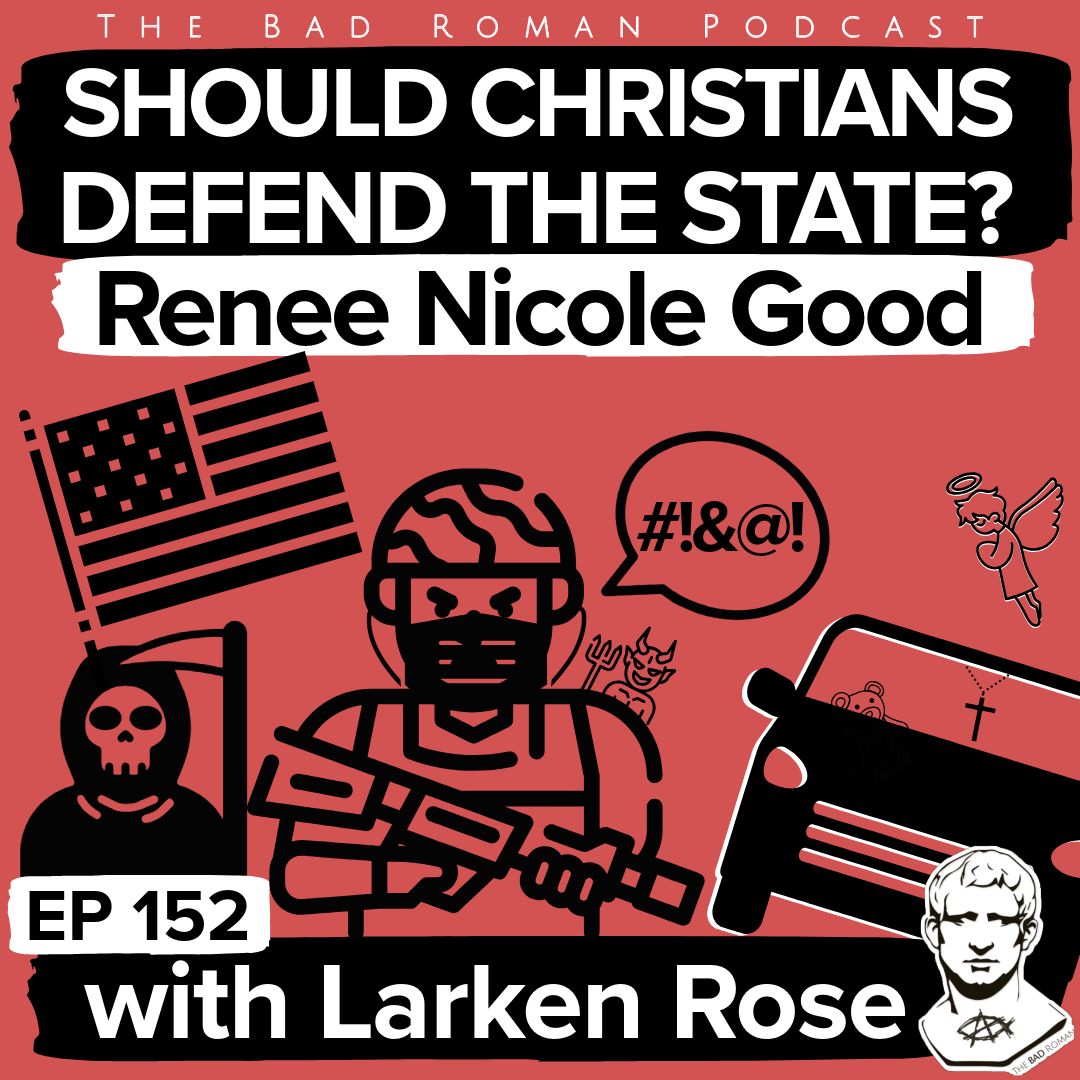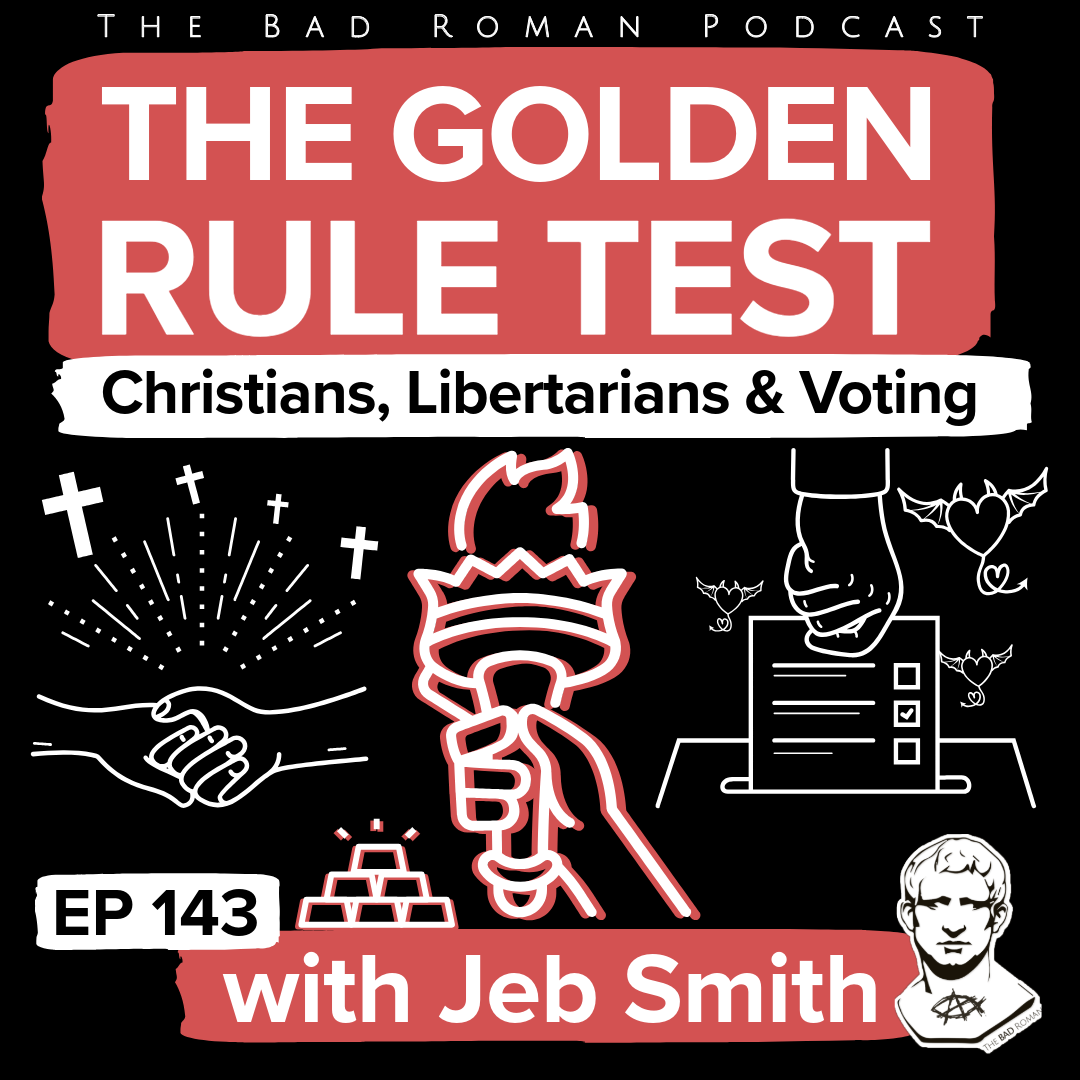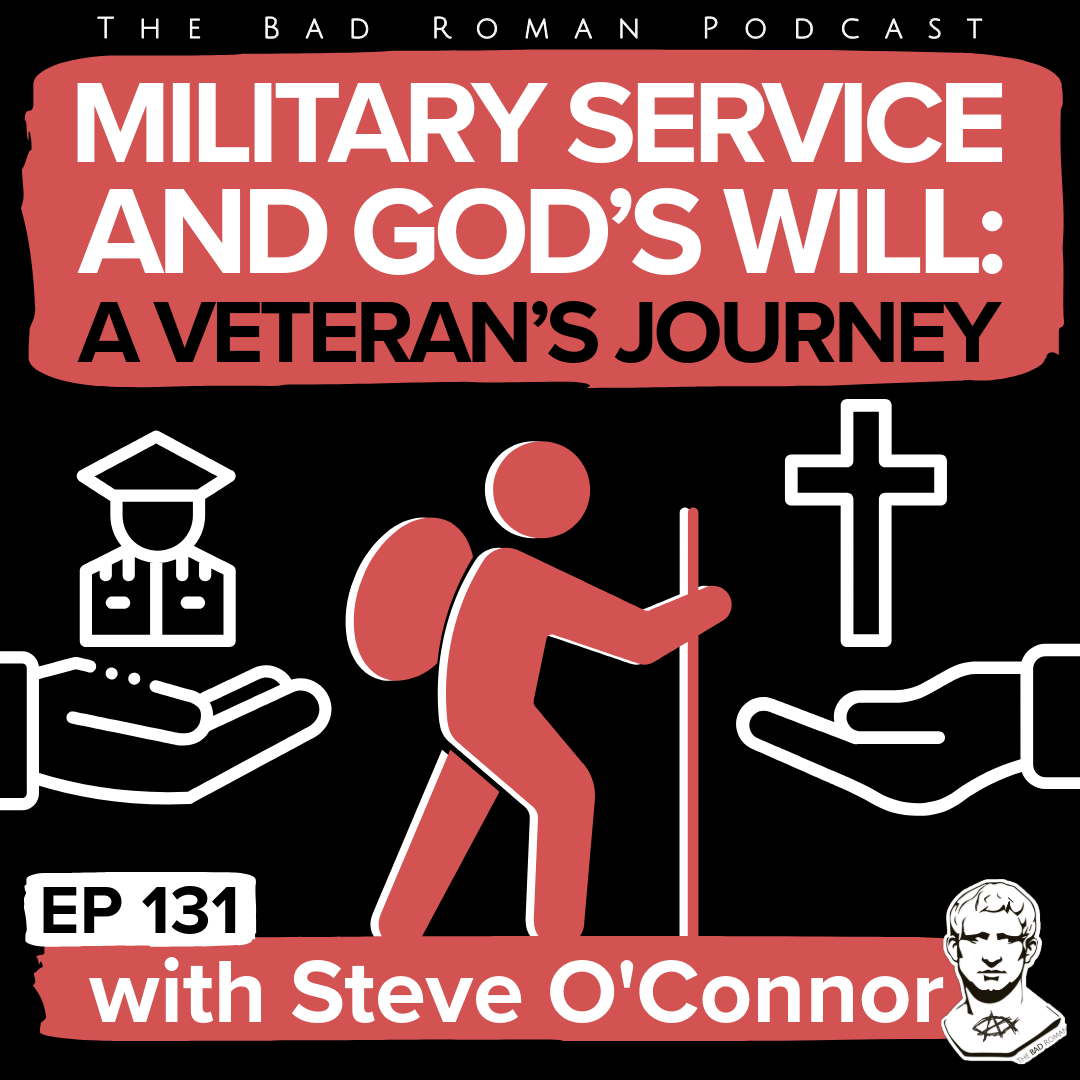The Fallacious Belief in Government: Unmasking the Illusion of State Control
Are you ready to challenge everything you thought you knew about government and freedom? In this eye-opening episode of the Bad Roman Podcast, we dive deep into the heart of statism with author and researcher Jeffrey Hann. His latest book, The Fallacious Belief in Government: Warp Speed Toward Tyranny, exposes the dangerous myths we've been fed about the necessity of state control.
As we unpack the layers of government deception, you'll discover:
Why critical thinking is deliberately suppressed in public education.
How psychological operations keep us trapped in a cycle of fear and obedience.
The true nature of government as a tool of control over the innocent.
Why voting can't save us from the inevitable march toward tyranny.
How embracing anarchist principles could be our path to genuine freedom.
Prepare to have your assumptions challenged and your perspective transformed. This isn't just another political discussion – it's a wake-up call for anyone who values true liberty.
The Critical Thinking Crisis
What if our education system is deliberately designed to create "literacy slaves" – people smart enough to work, but not equipped to think critically about the world around them? Jeffrey breaks down how the classical trivium and Prussian education models have shaped generations of minds:
"You have the classical trivium that really creates literacy slaves that are smart enough to work, but not smart enough to think for themselves. The another model that the US picked up was the Prussian education system. The Prussian education system was designed by the Prussians after their military and mercenaries lost against Napoleon. And their parliament decided and determined that it was because soldiers were thinking for themselves."
This systematic suppression of independent thought isn't an accident – it's a feature of the system designed to maintain control. By understanding the three pillars of critical thinking – grammar, logic, and rhetoric – we can begin to break free from this mental prison.
The Psychological Warfare Playbook
Government control goes far beyond the classroom. Jeffrey exposes the insidious world of psychological operations (psyops) used to manipulate public perception and behavior:
"And if you're unaware of that, it just seeps in and it causes a psychological effect so that you struggle at trying to make real informed decisions, making you easier to control and manipulate."
From manufactured crises to carefully crafted narratives, these tactics keep us in a constant state of fear and compliance. By recognizing these strategies, we can start to see through the illusion and reclaim our mental autonomy.
The True Nature of Government
From democracy to tyranny - is it inevitable? Hann walks us through Plato's five regimes and why he thinks we're headed for a fall.
At its core, Jeffrey argues that government is nothing more than "a tool or action of control over the innocent." This fundamental truth challenges the very foundation of what most people believe about the role of the state in society:
"The true nature of government is tyrannical… just looking at the word government itself, it's a tool or action of control over the innocent. And I always classify that. ‘Over the innocent’ is why it makes it tyrannical because that, if you're being controlled and you haven't committed a crime, created a victim, then your rights are being violated."
This perspective forces us to confront uncomfortable questions about the legitimacy of state power and the true meaning of concepts like "law" and "justice."
The Illusion of Political Solutions
If you're pinning your hopes on the next election to solve society's problems, Jeffrey has a sobering message:
"There's no voting our way out of it. Tyranny is just gonna progress further and further. Trump and Musk are implementing Agenda 2030 and ushering in the Great Reset."
He argues that the political system itself is designed to perpetuate control, regardless of which party or individual is in power. This cycle of tyranny can't be broken through conventional means – it requires a fundamental shift in how we think about governance and freedom.
Embracing Anarchist Principles
So what's the alternative? Jeffrey advocates for a form of anarchism based on voluntary interactions and respect for natural rights:
"Anarchism is a system or practice of no rulers, voluntary action and absence of government over the innocent, based on natural rights, life, freedom and property. That is the, the most succinct definition I can provide of what anarchy is and that there's no middle ground."
This isn't about chaos or disorder – it's about creating systems that respect individual autonomy while allowing for voluntary cooperation. It's a radical reimagining of how society could function without coercive state control.
What We Learned About Freedom and Government
This conversation with Jeffrey Hann challenges us to question our deepest assumptions about the role of government in our lives. By exposing the fallacious belief in state control, we open the door to new possibilities for genuine freedom and voluntary cooperation.
Key takeaways:
Critical thinking is a skill that can be developed, despite systemic efforts to suppress it.
Psychological operations are constantly at work to maintain our compliance – awareness is the first step to resistance.
Government, by its very nature, is a tool of control over the innocent.
Political solutions within the current system cannot address the fundamental problems of state tyranny.
Embracing anarchist principles based on voluntary interaction and natural rights offers a path forward.
Are you ready to challenge your beliefs and explore a new vision of freedom? Listen to the full episode for an in-depth exploration of these ideas and practical steps you can take to reclaim your autonomy. Remember, true change begins with how we think about the world around us. It's time to break free from the mental chains of statism and embrace a future of genuine liberty.
Connect with Jeffery:
Get His Books:
COVID-19: A Short Path to You'll Own Nothing and You'll Be Happy (2023)
The Fallacious Belief in Government: Warp Speed Toward Tyranny (2025)
Connect with Jeffrey Hann on social:
X (Twitter): @JeffreyHann
Instagram: @Jeffrey.A.Hann
Listen to the Music:
"Fallacious Belief in Government" album on YouTube
"Militant Anarchist" album on YouTube
Also available on streaming platforms like Spotify, Apple Music, and Pandora
Explore his Website:
Journalistic Revolution: journalisticrevolution.com
Instagram: @journalisticrevolution
Facebook: Journalistic Revolution
Episode Timestamps:
(2:01) Jeffrey's recent projects
Music production and album releases
Focus on conveying philosophical beliefs through music
(3:01) Critical thinking and government belief
Challenges in getting people to question their faith in government
Importance of critical thinking skills in today's society
(4:30) Personal journey of changing beliefs
Discomfort in realizing one's previous beliefs were wrong
Importance of being open to new perspectives
(6:06) Psychological operations and fear
Discussion on the use of fear by governments
Historical context of psychological operations
(8:34) Life cycle of government
(20:36) Democracy and its flaws
Critique of democracy as majority rule
Discussion on the misuse of the term in modern politics
(25:23) Anarchism and its principles
Definition and exploration of anarchist philosophy
Importance of voluntary interactions and absence of rulers
(37:35) Roads argument and government justification
Common arguments for government necessity
Critique of government efficiency in infrastructure
(42:05) Hope and the need for societal evolution
Discussion on the potential for positive change
Importance of creating content to spread ideas
(47:55) Jeffrey's resources and future projects
Overview of books, articles, and music
Upcoming work on plasma cosmology
(49:20) Conclusion and call to action












































